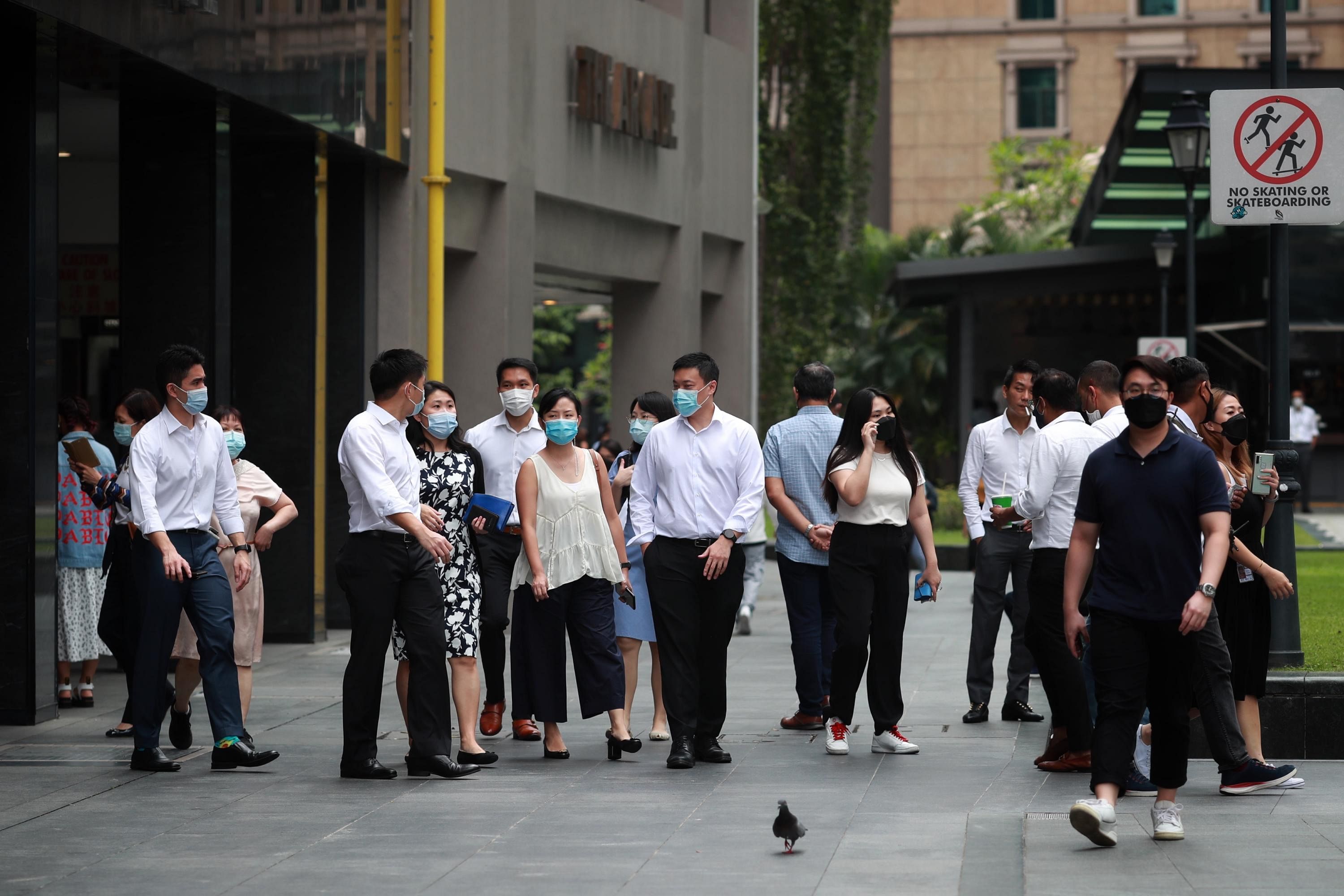S'pore workers can expect 3.8% raise this year: Survey
Sign up now: Get ST's newsletters delivered to your inbox

Singaporean workers are still ranked among the best paid in total compensation.
PHOTO: ST FILE
SINGAPORE - Employers are preparing to pay workers more as the economic outlook improves and to offset two looming threats to Singapore's recovery: inflation and a talent crunch.
Bosses plan to offer average pay rises of 3.8 per cent this year, up from 3.4 per cent in 2021, noted a survey that polled 456 local firms last October and November.
The anticipated salary hike here falls below the average 5.08 per cent that will be offered by companies across the region, but Singaporean workers are still ranked among the best paid in total compensation.
They are ahead of countries like Japan and South Korea and behind only Australia, noted the survey by advisory firm Willis Towers Watson that covered 5,728 companies across the Asia Pacific (Apac).
"There seems little doubt that costs, wages and prices are going up this year," said Mr Edward Hsu, Willis Towers Watson's lead for rewards data and software for the region.
"With Apac's consumer price index expected to hit 3 per cent or even more in some markets, employers will most likely take living costs into account for salary increases."
The hiring economy has been changing so fast that 25 per cent of the survey respondents said they tore up their original payroll estimates made just less than four months before to reflect the new trends.
The study found that 30 per cent of employers in the region are raising payroll budgets due to the tight labour market, 23 per cent are doing so owing to better business outlooks while 19 per cent are responding to inflation, which could have hit 2.3 per cent here last year once the final numbers come in.
Professional networking and job platform LinkedIn reported this week that its survey showed that 68 per cent of Singapore workers were thinking of quitting their jobs this year.
The most convincing reasons that would make them stay put are a pay rise (54 per cent), better work-life balance (42 per cent) and more flexibility in where they work (39 per cent).
A data analytics specialist in his late 30s, who asked not to be named, told The Straits Times: "A higher pay would be a good initiative to retain staff, especially if profits have increased or are going back to normal."
Recruitment consultancy Mercer Singapore, which projects salary increments to recover to pre-pandemic levels at 3.6 per cent this year, expects the talent shortage to hit smaller businesses the most.
Indeed, a manager in his mid-20s, who does not want to be named, is applying for a better-paying position in the technology sector after one year in a local company with fewer than 10 employees.
"All my colleagues who joined after me have left," he said in an interview with The Straits Times. "There's little prospect here and even if my boss pays more, it won't be much more."
Mercer's reward products leader, Ms Mansi Sabharwal, said salary increments, higher costs to replace workers, the loss of productivity due to staff churn, along with the impending goods and services tax (GST) hike all point towards higher business costs.
Employers need to digitalise, raise productivity and keep business costs sustainable, she said, adding: "The key for employers is to focus on what they can control, instead of what they cannot control."
For some employers, some workers may be lost for good.
Mr Dylan Wong, 36, told ST last November that he had left his real estate employer after it imposed a salary freeze and paused wage increments and promotions to become a self-employed financial services adviser in April.
He discovered "greater autonomy and most importantly, the fulfilment of doing something that can impact someone positively".
He is not going back, he said, even if his old boss dangles a bigger pay cheque.


